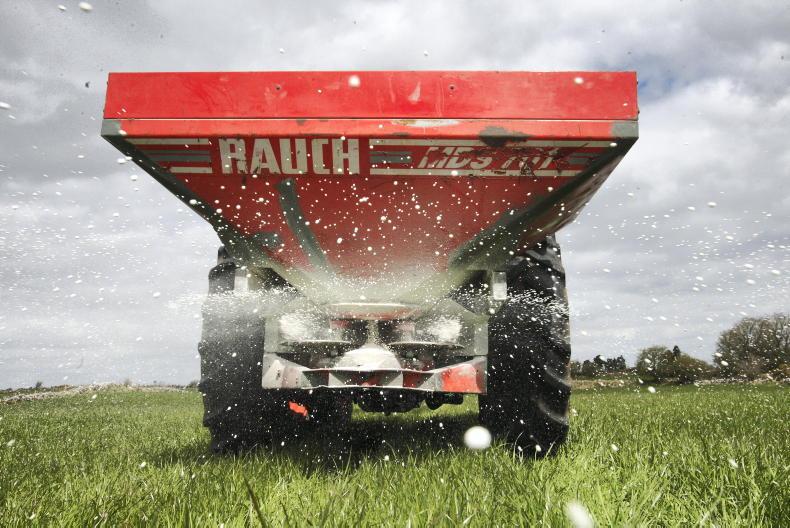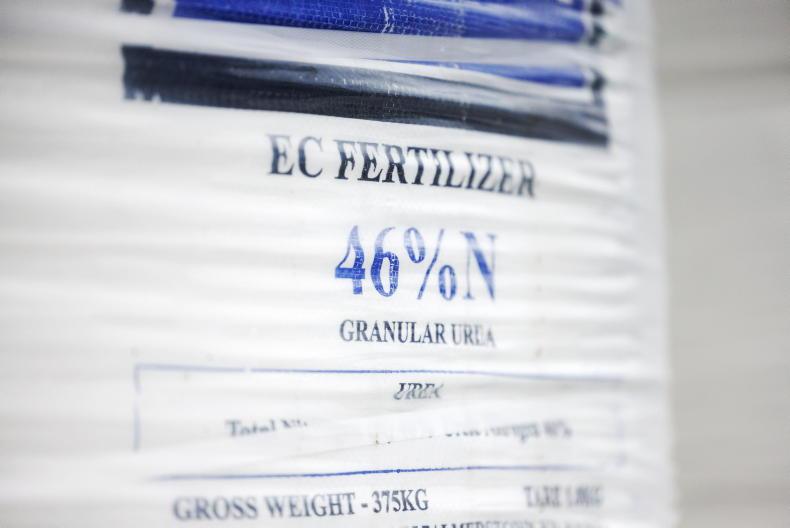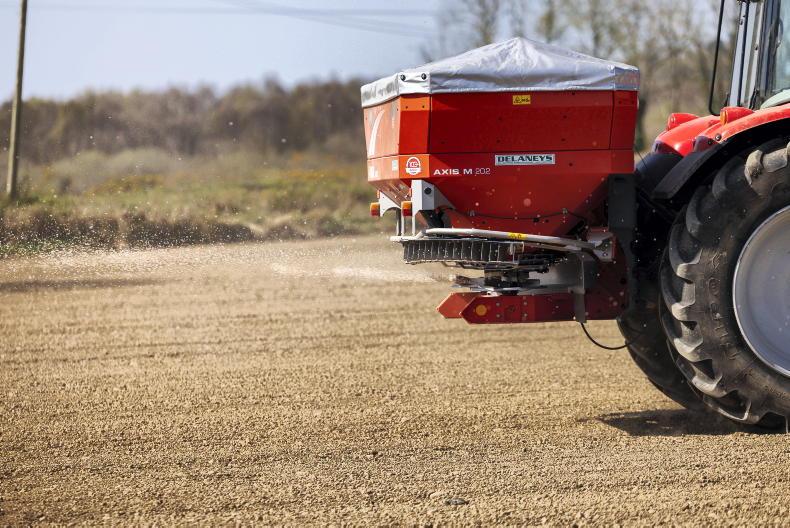It is 27 years since the EU introduced an anti-dumping duty on the import of ammonium nitrate (AN) from Russia.
The anti-dumping duty is a protectionist tariff that the EU imposes on foreign imports priced below their fair market value.
It is highly unusual for such a measure to exist for such a long time, but the EU fertiliser manufacturers defend it vigorously. The absence of significant fertiliser imports to the EU reduces competitiveness in the market and it is farmers who suffer with inflated prices.
The additional duty of €32.71/t plus an import duty of 6.5% does not make it financially viable to export to the EU and it hands EU nitrogen producers a dominant market position, with prices to match, within the EU.
Campaigns to have anti-dumping duties eliminated or suspended have had mixed success
The current energy crisis and high price of natural gas has seen urea prices in Ireland triple from €290/t in 2019 to almost €1,000/t. The IFA has sought a fairer market for fertilisers within the EU and, as Ireland lacks domestic production, we are particularly exposed.
Campaigns to have anti-dumping duties eliminated or suspended have had mixed success. The political resistance to creating the environment for a fairer, more transparent market for fertilisers in the EU is significant. Unfortunately, policymakers fail to grasp the important role that fertiliser plays in supplying consumers with an abundance of quality and affordable food.
Most recently, the IFA has supported COPA, the European farmers’ organisation, in requesting the suspension of the anti-dumping duty on urea and ammonium nitrate (UAN), a liquid fertiliser used widely by cereal farmers on the continent.
the EU industry should achieve a price that reflects a target profit of 10% and additional environmental costs of 3.8%
In 2019, the IFA worked with several European farmer organisations seeking to prevent the Commission from introducing anti-dumping charges on UAN fertiliser, but were unsuccessful.
In calculating the duties, the Commission stated that, after their imposition, the EU industry should achieve a price that reflects a target profit of 10% and additional environmental costs of 3.8%. But the EU already pays a higher price for fertilisers – UAN price in France in Q3 2021 averaged 16% more expensive than UAN in the US.
COPA’s calculation of EU manufacturers’ profits in June this year showed profit levels for EU manufacturers above 45%, more than three times what it considered reasonable, and with the near trebling of EU prices on UAN, there is no longer any dumping taking place.
Fertilizers Europe, representing European fertiliser manufacturers, wrote to MEPs on 29 November, claiming that the “extremely high gas prices in Europe has moved the EU industry into a loss-making situation.”
At the same time, Yara announced a 37% increase in EBITDA quarterly profits. The Dutch company OCI N.V. said its adjusted EBITDA for the nitrogen business increased 151% between Q3 2020 to Q3 2021 ($438m), despite the turnarounds and higher gas prices in Europe and the US.
The European Parliament’s agriculture committee debated the fertiliser price crisis on 30 November, with several MEPs supporting the suspension of anti-dumping duties, in particular on UAN.
Energy prices are on the European Council’s agenda for 16 December.
The Commission has said that a suspension of the anti-dumping duty of €22-42/t on UAN won’t make a significant difference to farmers’ current issue with fertiliser prices.
On the contrary, an average user of UAN in France would save up to 16% of their average annual income if the duty were to be suspended. This is the market reality and it must be recognised by the Commission.
Farmers may choose to wait until spring and hope prices will come back
At today’s prices, an Irish winter wheat grower will spend €500/ha more on fertiliser than 2020, while a dairy farmer could face over 5c/l additional cost, based on CAN prices from 2021 versus 2020.
Farmers may choose to wait until spring and hope prices will come back. If prices remain elevated, less fertiliser will be purchased and the impact on yield and income will be seen at harvest time.
It is time for the Commission to use its powers and consider the impact on millions of farmers and farm families
Forage crop yields across the board will be affected and, if combined with a weather event, one can see how quickly a fodder crisis could develop.
This will add inflationary pressure to food prices, affecting a greater swathe of society than just farmers. It is time for the Commission to use its powers and consider the impact on millions of farmers and farm families and be satisfied that the large EU manufacturers are not under threat of disappearing.
The Commission’s imminent decision on UAN will determine if recognition is at last given to the unfair playing field for EU farmers in purchasing fertilisers, or whether big business, coupled with politics, continues to win out.









SHARING OPTIONS